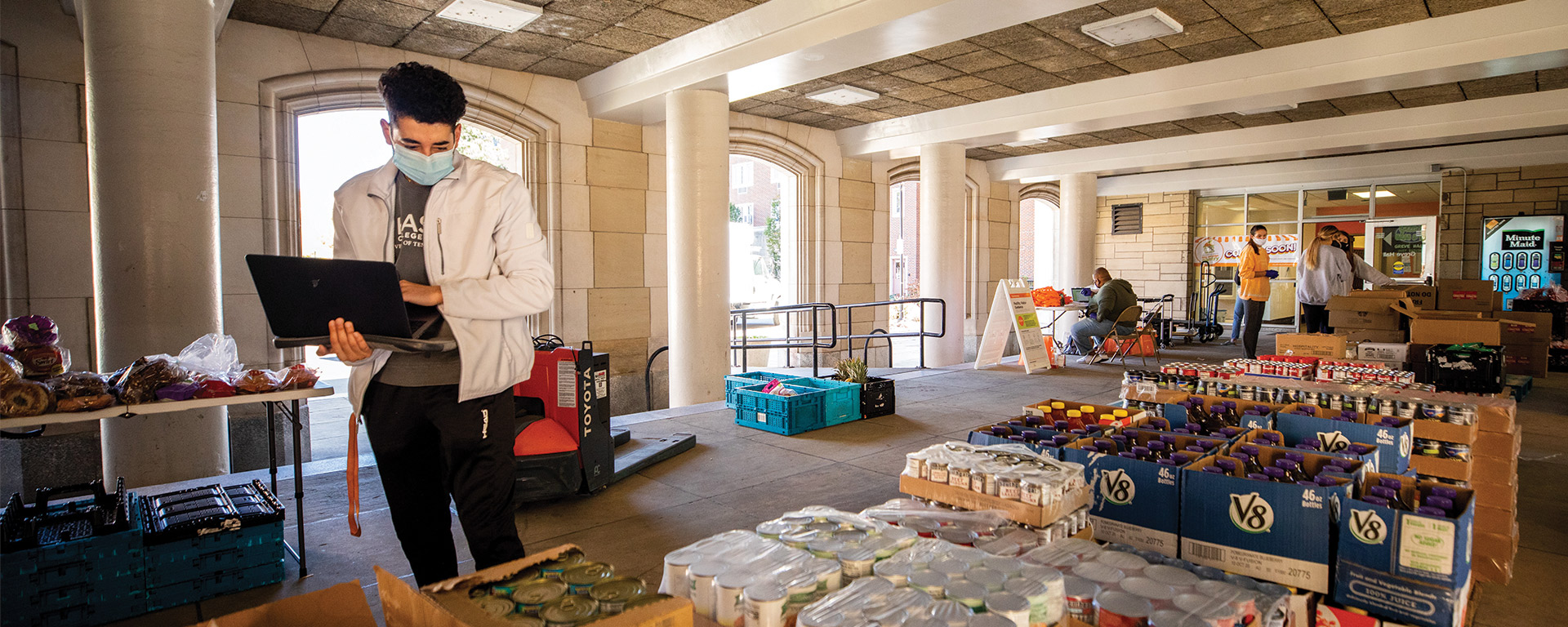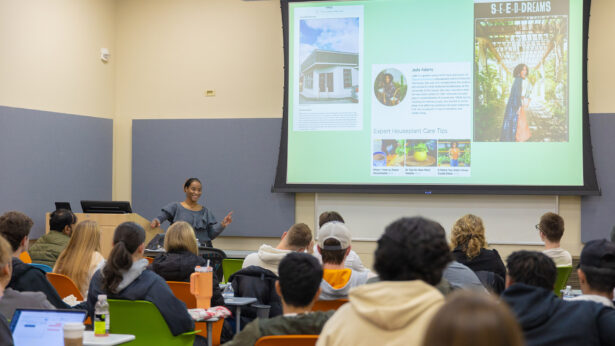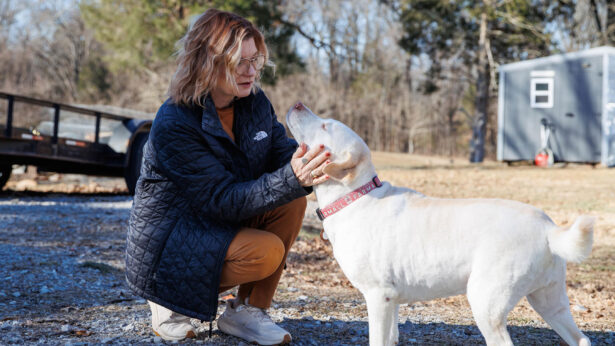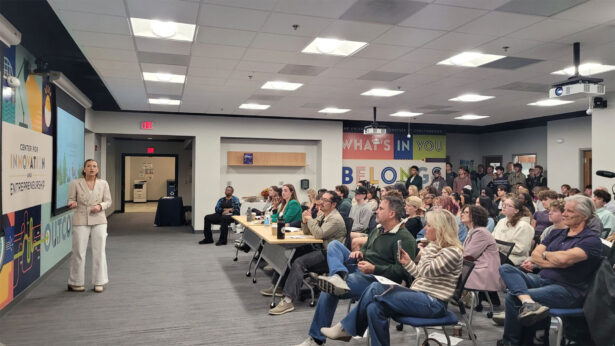Jessica Mooneyham (Chattanooga ’02) spent her first three weeks at UT Chattanooga in overflow housing at a hotel. Before her financial aid came through, Mooneyham experienced hunger.
“I ate the hotel breakfast every morning and bought saltines, peanut butter and a jug of water at the CVS across the street to have for lunch and supper,” she says.
After she received her financial aid, she could afford a small amount more, but the reality of hunger remained.
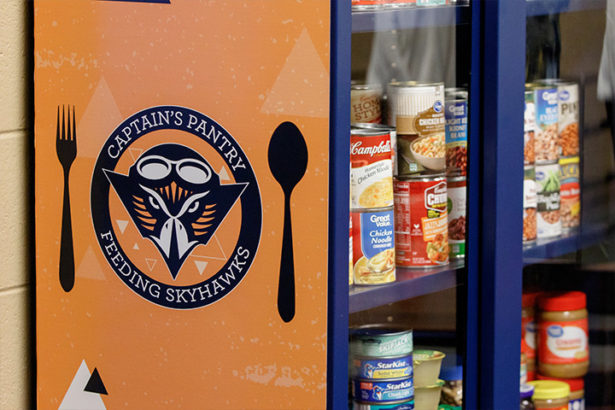
There are stereotypes of college students living off macaroni and cheese and ramen noodles, but this stereotype often comes with lighthearted laughter over the broke college-student scenario. In reality, on every college campus across the country, students can find themselves hungry and without the means to sustain their nutritional needs.
Jess Gutherie, UT Health Science Center assistant director of community engagement, says, “A lot of us are one paycheck away or maybe two paychecks away from being homeless, so we have a little deeper sense of empathy for recognizing that hunger. It doesn’t look like what you think it looks like.”
According to a 2019 survey of nearly 167,000 students from two- and four-year institutions, 39 percent faced food insecurity in the last 30 days. In fall 2021, enrollment across all University of Tennessee campuses was 53,106, and using that 2019 survey percentage, one could estimate that more than 20,700 UT students experienced food insecurity during the academic year.
To help alleviate this problem, all UT System campuses have established food pantries to offer food and personal items for free.
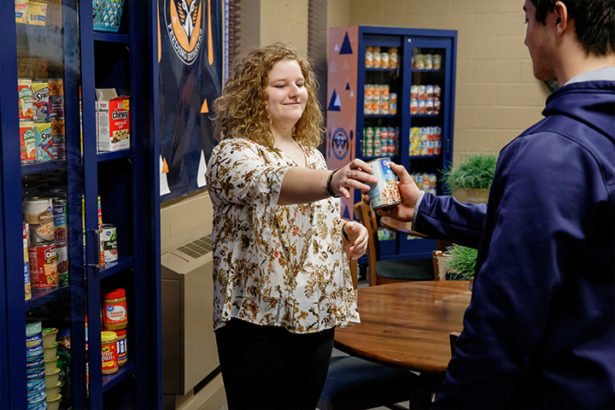
Ryan Martin, assistant director for residence life who oversees UT Martin’s Captain’s Pantry, says, “Sometimes those hunger pains or maybe that food insecurity could be a big stressor, so we just take one thing off of their plate for that day, no pun intended. If we can just, like, help them out, hopefully it gets them to where they can just keep pushing on to their goals and not worrying about the food part.”
While the donations of food and personal goods are a staple at food pantries, UT alumni, donors and friends have begun answering the call to help.
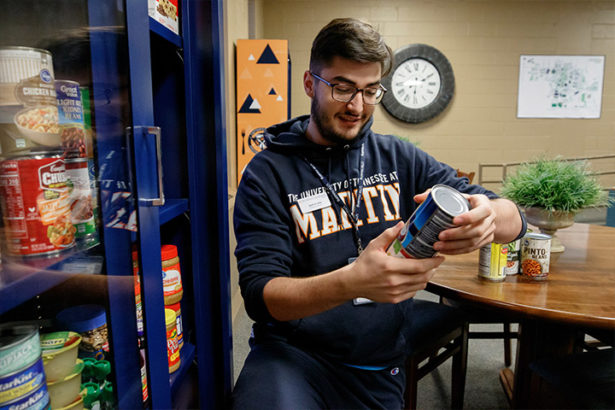
“I think we usually focus our donations on the academic or sports side of the college experience, and sometimes we forget or don’t realize the personal side—students that are hungry or homeless or trying to pay for day care while they work toward a better life,” says Mooneyham. “That’s why I give to these funds and why I will continue to give to these funds.”
And those donated funds can go far. Through their relationship with the Mid-South Food Bank, the pantry at the Health Science Center can purchase around $4 in grocery food for every $1. For the Big Orange Pantry on the UT Knoxville campus, $50 can provide 150 meals.
After hearing about the Big Orange Pantry during the COVID-19 pandemic, Stephanie Simpson (Martin ’86, Knoxville ’92) made a donation. The idea of a student or staff member going hungry pulled at her heart strings, and she wanted to help.
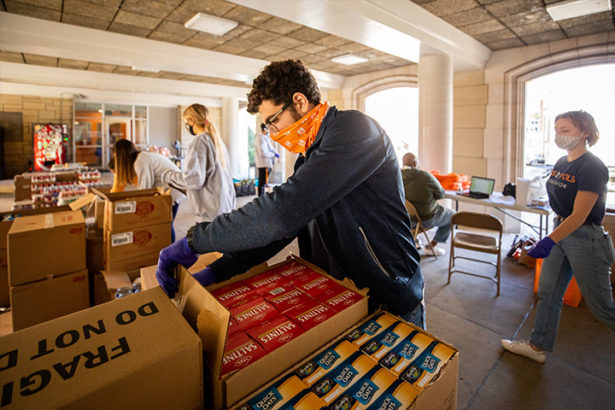
“The Big Orange Pantry is working to meet the needs of college students to ensure that they have the food and nourishment they need and can thrive in their studies,” she says.
In addition to food items, many of the pantries offer personal hygiene products, and some offer baby food and diapers for students with children. Students who are also parents often use their limited funds to feed and take care of their children, sacrificing their needs in the process.
The short-term impact lessens the burden of hunger and allows students to focus on their academics. The campus becomes a trusted safe haven and a place that helps students reach their full potential in more ways than their education.
“The message that it (student food bank) sends and the trust that it builds with our students is that we don’t care if you have money or not, we’re here to take care of you,” says UT Southern Director of Student Life Sarah Catherine Richardson.
In addition to the food pantries helping to meet the needs of students experiencing hunger, they also offer an additional educational source. For students at the UT Health Science Center, Gutherie says that a health-care challenge is recognizing the full social framework when someone comes in with an issue. Students in the health professions are learning to look at those factors and also learning the language of hunger. Those lessons will create better care for Tennesseans and beyond as those students enter their chosen medical fields.
At UT Chattanooga, Associate Director for Student Outreach and Support and Case Manager Tish Hubbard says students may volunteer with Scrappy’s Cupboard, which not only provides learning experience but can also provide needed volunteer hours for scholarship programs like UT Promise.
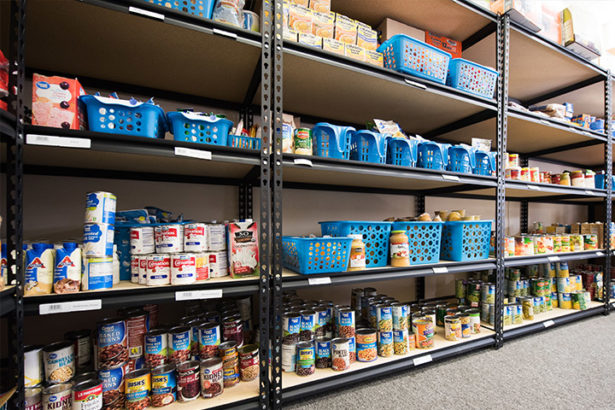
“We can immediately give students volunteer hours so they can continue at school and continue with their scholarship,” she says.
Donors such as Mooneyham, who have lived the experience, understand the need and urge others to be part of the solution.
“Taking food stress off of students will help them succeed,” she says, “They can study and not worry about the hunger in their stomach or where their next meal will come from or have to face the decision to quit school and work full time to get by.”
Donations may be made at alumni.tennessee.edu/food.
